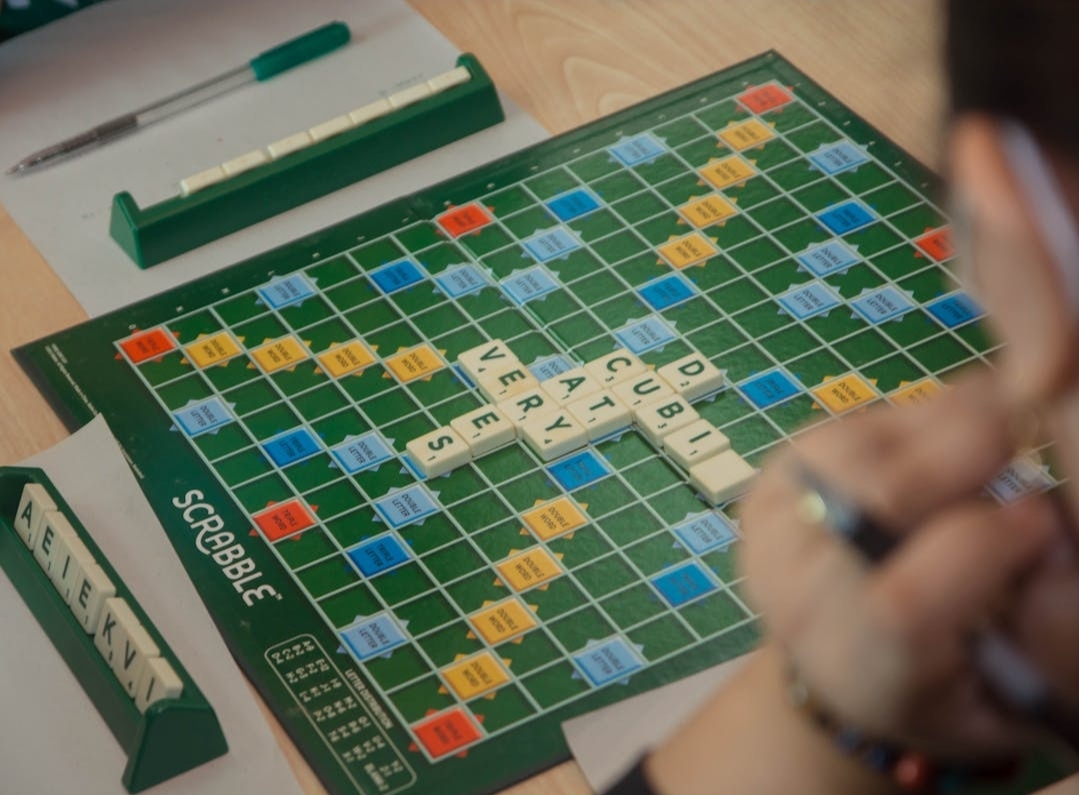My father’s family played Scrabble after every wonderful German dinner for Christmas, Thanksgiving, and on other holidays. I hate Scrabble.
First of all, I can’t spell. It’s tough to make words on this complicated board when spelling is a major challenge. I was the first, second, or third to be ousted at Spelling Bees in elementary school and leaving that horrid line-up to sit down was a wonderful relief. Second, I was a kid and most of the Scrabble players were adults, so they had a more formidable vocabulary.
But people don’t understand why I wouldn’t love the game since I’m an English major. I do like words, I just need help to spell them!
Scrabble first provided a distraction and a real game spirit during the Great Depression. Its humble beginnings emerged as New York architect Alfred Mosher Butts considered the long-lasting games and their playing tools: board games, dice or card number games, and crossword puzzles. His basic understanding of words and how they are created is related directly to his venture into counting letters in the text of the publications The New York Times, the New York Herald Tribune and The Saturday Evening Post. Over the next decade he tried a variety of rules for his game, but a corporate sponsor needed to market his game was not forthcoming.
James Brunot contacted Butts about the game, and Butts turned everything he developed over to Brunot. Thus, the Scrabble game close to how we now know it today arose. Brunot created the color scheme (pastel pink, baby-blue, indigo, and bright red) and made the 50-point bonus when a player uses all seven tiles to make a word. The production of the first games took place in rural Connecticut where a team of several friends created 12 games an hour.
The two men created the name “Scrabble”, which is a real word that means “to grope frantically.”
The Chairman of the Macy’s department store encountered the game and offered it for sale in his stores. Because of the huge demand, Brunot sold the marketing and distribution rights to a company named Selchow and Righter of Long Island, New York; Brunot received $1.5M and Butts was paid $265K as the purchasing company received the exclusive rights to the game. The need for the game exploded and this company was able to make 2,000 games a week. Approximately 4 million Scrabble games were sold in 1954.
The National Scrabble Association appeared in 1978 and this organization oversaw all the official tournaments and clubs while also publishing the Scrabble Players Newsletter. The first Official Scrabble Players Dictionary (OSPD) cited the official tournament rules and introduced the players’ rating system.
A Scrabble daytime game show ran on NBC from July 1984 to March 1990 followed by another run from January to June 1993. The television show produced 1,335 episodes. Several other highly visible corporations took over the rights for the game, and it was inducted (along with G.I. Joe and the rocking horse) into the National Hall of Fame in 2004.
Scrabble continues to be very popular by, I would assume, great spellers, and it has morphed into games on Facebook and other computerized venues. It has certainly stood the test of time.
Her Nexx Chapter invites you to join our free Community where women from around the world are connecting with each other’s stories, exploring different experiences, and transforming ideas.
The Future of Connection for Women








0 Comments